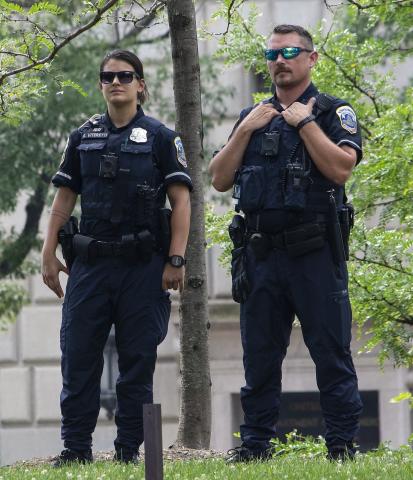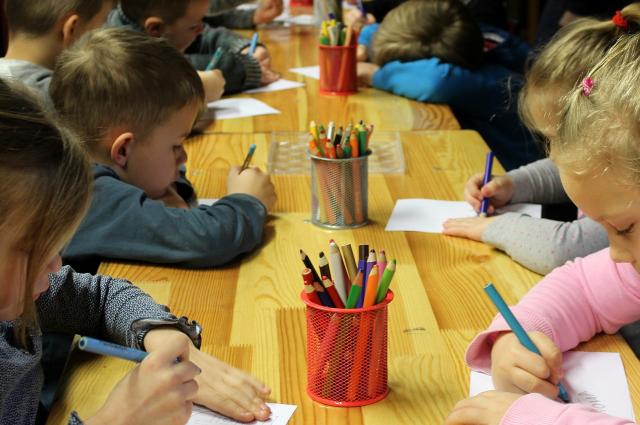Security and safety have become increasingly essential in today's world, particularly within educational institutions. In the state of Texas, the passage of HB3 by the 88th legislature and Governor Abbott's subsequent approval has mandated the presence of armed security in all K-12 schools. This legislation has opened up significant opportunities for both local law enforcement agencies and private security companies to make a positive impact on the perception of security personnel and foster safer school environments. The opportunity for close collaboration between police and private security has never had a more noble purpose.

HB3 Section 8-a-3 and the Private Security Provision
This Act includes provisions for commissioned security officers licensed under OC Chapter 1702 in schools. School districts are authorized to employ security personnel, including commissioned peace officers, to carry out school safety and security measures. These officers must undergo specific training required by the Department of Public Safety. The jurisdiction of a peace officer, school resource officer, or security personnel on school grounds is determined by the board of trustees of the school district. Additionally, the Act mandates that at least one armed security officer be present during regular school hours at each district campus. The use of security officers must comply with guidelines established by the Office of School Safety and Security within the Texas Education Agency.
Importance of Positive Police Perception
In recent years, there has been a growing animosity and public disdain towards law enforcement, which has had a profound effect on police perception. Building positive relationships between the police and the community is crucial for maintaining law and order. A favorable perception of the police not only enhances public safety but also encourages cooperation and mutual respect. With the implementation of HB3, there is an exceptional chance to reshape negative perceptions and create a safer environment for students and the community as a whole.
The Role of Private Security in HB3 Implementation
Private security companies play a crucial role in fulfilling the requirements set forth by HB3. These companies can complement the efforts of local law enforcement agencies by providing trained and equipped personnel who work in collaboration with school administration and staff. Armed with the necessary training and expertise, private security officers can effectively contribute to the overall safety and well-being of students within Texas K-12 schools.
One of the significant advantages that private security brings to the table is the ability to provide customized security solutions tailored to the specific needs and challenges faced by each school. Through comprehensive risk assessments and strategic planning, private security can implement preventive measures that address concerns unique to individual educational institutions. This personalized approach ensures that security measures are aligned with the school's environment and promotes a sense of safety within the campus community.
Texas Defense Force Security is uniquely positioned, as a volunteer organization, to recruit and train security officers from within the communities where they are needed. Our School Officer Program is designed to bring members of the community into service of that community. Parents, aunts, uncles - family - the people with the most to lose can make the greatest contribution.

Creating Positive Relationships between Police and Students
To promote a positive perception of law enforcement, it is vital to establish meaningful connections between police officers and students. Security officers, acting as liaisons between the police and the students, can play a pivotal role in advocating for both parties. By fostering open lines of communication, security officers help students understand the importance of the police and their commitment to safeguarding the community.
The presence of security officers in schools also allows for direct interaction between students and law enforcement in a non-intimidating environment. This interaction humanizes the police, dispelling preconceived notions and stereotypes that may have developed due to negative media portrayals. Students have the opportunity to see officers as approachable figures who are there to protect and support them, strengthening trust and building positive relationships.

Promoting Collaboration and Community Engagement
Collaboration between private security companies, law enforcement agencies, and educational institutions is paramount in ensuring the successful implementation of HB3. By working together, these entities can coordinate efforts to create a safe and secure learning environment for students. This is the foundation of the TXDF School Officer Program.
One practical approach is community engagement programs that facilitate positive interactions between law enforcement personnel and students. Programs like mentorships, classroom presentations, and community events allow officers to engage with students in meaningful ways that go beyond the enforcement role. These interactions create opportunities for mutual understanding, fostering positive perceptions and building trust.
Moreover, comprehensive training programs for private security officers are vital to equip them with the necessary skills and knowledge to navigate various situations effectively. Training should encompass conflict resolution techniques, cultural sensitivity, and de-escalation strategies to ensure security personnel respond appropriately and minimize the potential for negative incidents.
Transparent communication channels between private security, school administrators, students, and parents are essential. School authorities must communicate the role and responsibilities of security officers, emphasizing their commitment to student safety. This transparency builds trust and mutual understanding between all stakeholders, ultimately contributing to a safer and more conducive learning environment.
Conclusion
The implementation of HB3 has created a unique opportunity for both law enforcement agencies and private security companies to positively impact police perception and enhance safety in Texas K-12 schools. By fostering positive relationships, promoting collaboration, and utilizing tailored security solutions, these entities can work together to create safer schools where students can thrive and learn without fear. As we continue to prioritize security within educational settings, stakeholders must remain committed to excellence and continuous improvement to provide the highest level of safety and reassurance to students, parents, and the community at large.
Positive relationships foster trust and mutual understanding, dispelling stereotypes and promoting cooperation, which enhances safety and promotes a favorable perception of law enforcement. Security officers facilitate open communication, advocate for students' rights, educate students about the role of the police, and assist in interactions between students and law enforcement. Collaboration creates a comprehensive approach to safety, allowing for coordinated efforts, effective training programs, community engagement initiatives, and transparent communication. Programs like mentorships, classroom presentations, and community events provide platforms for meaningful engagement, fostering understanding and positive perceptions. Private security officers should receive training in conflict resolution techniques, cultural sensitivity, de-escalation strategies, and appropriate response protocols. Transparent communication ensures that all parties involved understand the role of security officers, promotes trust, and maintains a safe and conducive learning environment. The goal is to create safer schools where students can thrive without fear, supported by positive relationships, collaboration, and continuous improvement in safety measures. HB3 is a legislation that mandates armed security in all Texas K-12 schools, enhancing safety measures to protect students and promote a secure learning environment. Private security companies can provide trained personnel who collaborate with schools and law enforcement agencies to fulfill the armed security requirements of HB Private security offers customized solutions, including risk assessments and strategic planning, tailored to address specific safety concerns faced by individual schools.Frequently Asked Questions:
Why is it important to build positive relationships between police and students?
What are some ways that security officers act as liaisons between students and the police?
How can collaboration between private security, law enforcement, and schools benefit student safety?
What types of community engagement programs can promote positive interactions with law enforcement?
What training should private security officers receive to navigate various situations effectively?
Why is transparent communication among stakeholders essential for effective security implementation?
What is the ultimate goal of implementing HB3 and prioritizing security in schools?
What is HB3 and how does it impact security in Texas schools?
How can private security companies contribute to implementing HB3?
What advantages does private security bring to school environments?